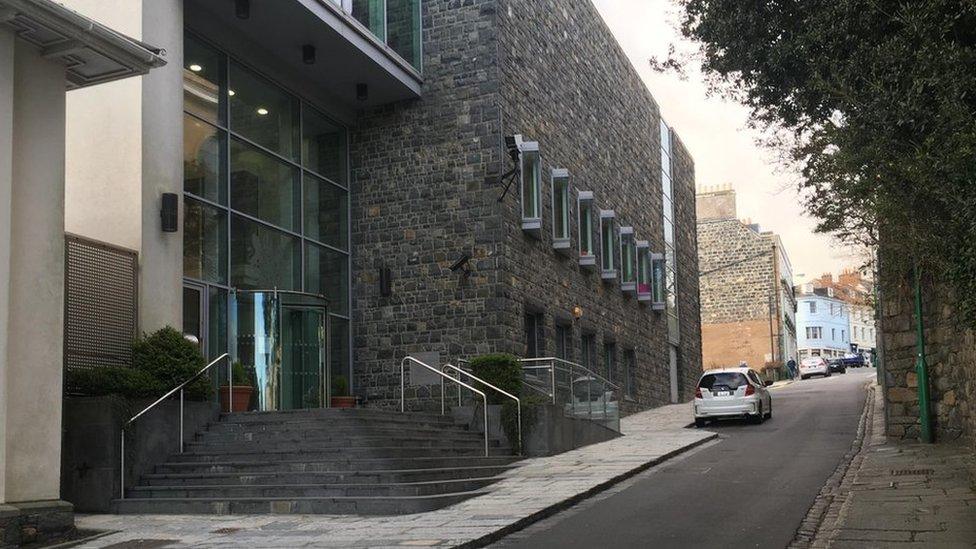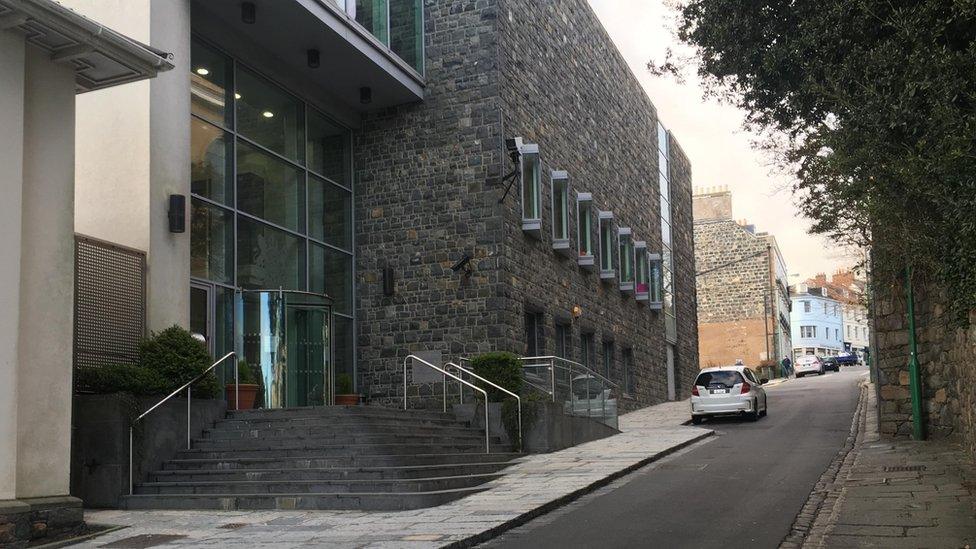Immuno Biotech owner 'conned us all', finance boss tells court
- Published

The trial is being held at Guernsey's Royal Court
The financial controller of a firm which sold an unlicensed blood product said his boss "conned" him into thinking it was legal, a court has heard.
Peter Dawson-Ball, 64, previously of St Martin, Guernsey, denies three charges of money laundering.
He worked for David Noakes, who was jailed for manufacturing, supplying and selling unlicensed blood product GcMAF.
Mr Dawson-Ball had thought its sale was legal, Guernsey's Royal Court heard.
Immuno Biotech sold GcMAF from its Guernsey office, where Mr Dawson-Ball was responsible for the firm's banking, tax, and corporate structure.
He is accused of having "facilitated" Noakes in the management and financial control of the company and its proceeds, made from the sale of GcMAF between January 2016 and February 2017.
Under questioning by his defence advocate, Mr Dawson-Ball said he was "a bit stunned" when he learnt of Noakes's arrest on 8 February 2017, but maintained he had faith in his boss at that stage.
'Lied to us'
Mr Dawson-Ball was arrested later the same month, and later charged with money laundering following a raid on Immuno Biotech's St Peter Port offices by health authorities.
He told the court after being released he continued to work to close down the company and was paid more than £15,000 between March and June 2017.
Prosecutors allege these payments from Dutch bank accounts relate to the proceeds of crime, and were knowingly paid by Mr Dawson-Ball into his HSBC account in Guernsey.
Despite multiple staff arrests and raids, he maintained he thought Noakes was producing a legal supplement, but now knows that was not the case.
"I never want to see that man ever again in my life. He lied to us, he conned us," he added
"This wasn't a supplement. It was a medicine and it should have been put through clinical trials and approved properly, and he didn't do that."
Noakes was later jailed for 15 months in November last year after he admitted manufacturing, supplying and selling an unlicensed medicine.
The trial continues.
- Published4 February 2019
